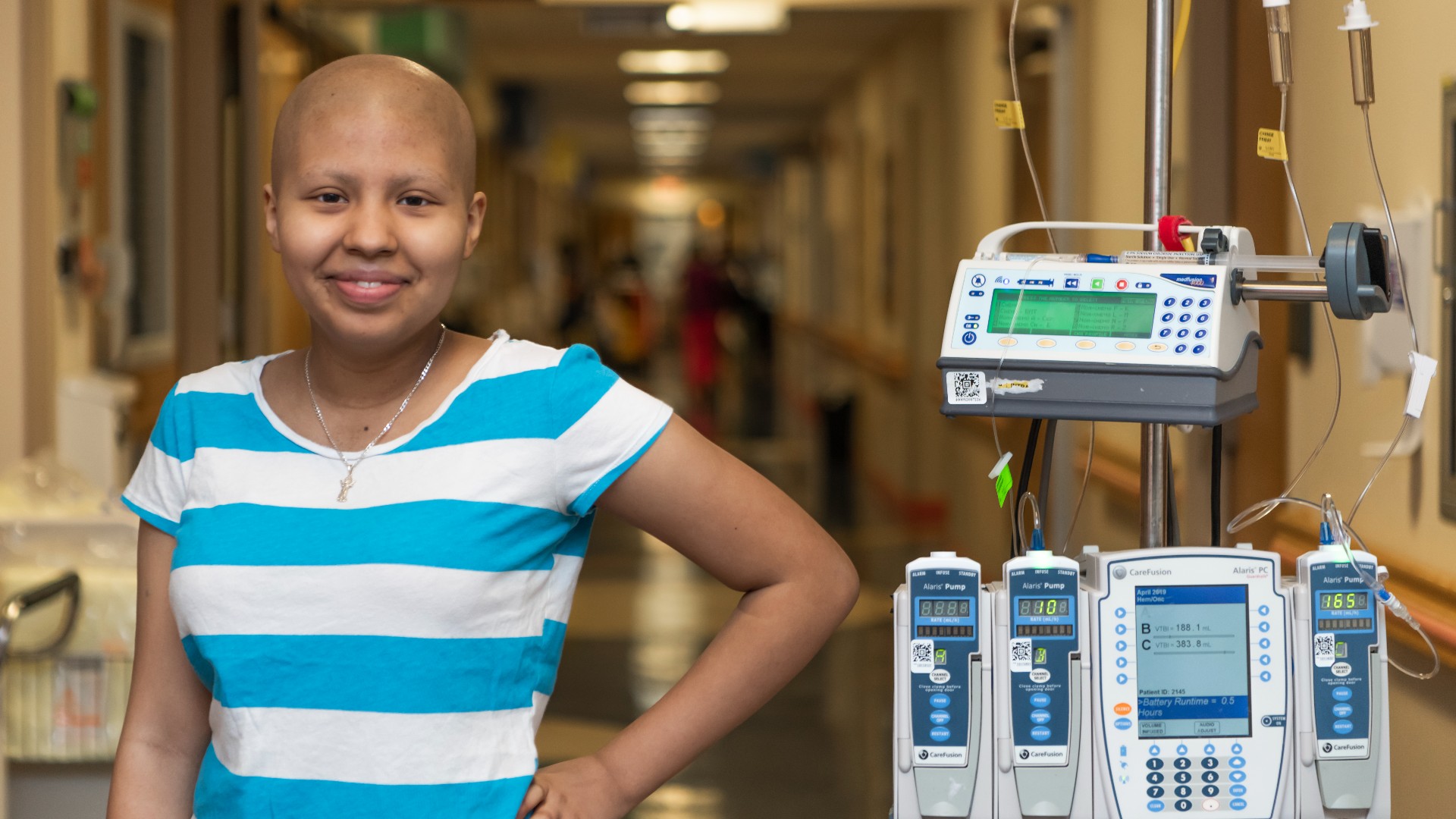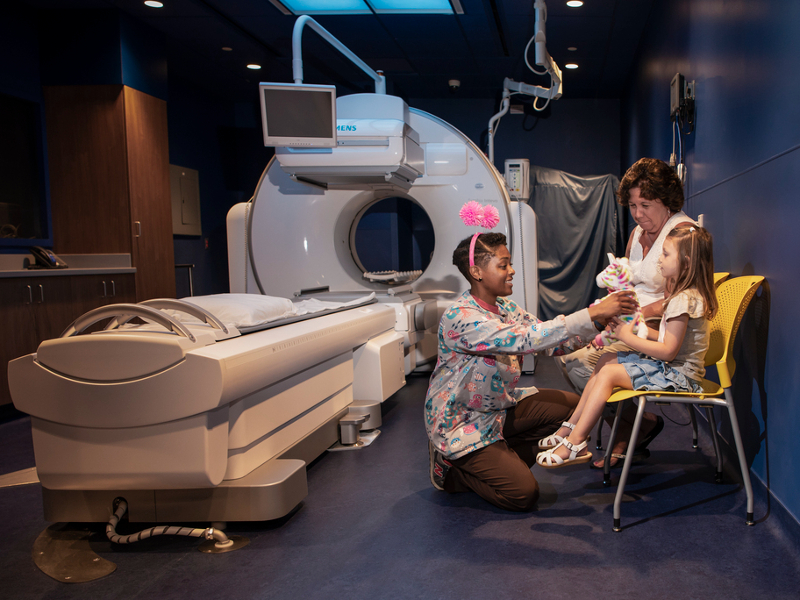Choosing Children's National for Brain Tumor Diagnosis and Treatment
Members of our team have earned national and international recognition for their expertise in diagnosing pediatric brain tumors. In fact, programs from across the country and around the world frequently call on us to review their patients’ tests and tissue samples and provide second opinions.
Highlights of our diagnostic capabilities include:
- Advanced imaging. We are one of few programs in the country offering functional MRI studies for pediatric brain tumors. This test helps us understand how your child’s tumor is affecting critical function areas, such as those that control breathing and balance.
- Innovative technology. Tools such as the NanoString® Digital Molecular Barcoding System allow us to examine the unique molecular characteristics of your child’s tumor. This helps us tailor brain tumor treatments to meet their specific needs.
- Expertise. Our team represents some of the nation’s top minds in pediatric brain tumor care. From neuro-radiology to neuro-pathology, we offer a level of specialization found only in the country’s top programs.
- Child-focused services. Your child’s comfort is important to us. We help them relax with special child-friendly amenities, such as special magnetic resonance imaging (MRI) suites where your child can watch a movie during their scans.
Brain Tumor Imaging and Diagnostic Testing at Children’s National
We offer the complete range of diagnostic tests. In most cases, we start with a neurologic exam. During this test, we ask your child questions and have them perform simple tasks to assess their mental status and brain functioning. This helps us determine whether your child needs additional testing, and if so, which ones would be most helpful.
Imaging tests
We use the best available imaging technology. This allows for faster scans while generating high quality, detailed images.
- Magnetic resonance imaging (MRI). MRI uses a magnetic field and pulses of radio wave energy to produce detailed images of your child’s brain. Our wide-bore 3 Tesla MRI Scanner has a large opening. This can prevent your child from feeling afraid of being in a tight space (claustrophobic).
- Positron emission tomography (PET) scan. This test uses trace amounts of radioactive substance to examine tumors at the molecular level. A PET scan can often detect abnormalities in cell activity before changes in their brain structures are visible.
- Computed tomography (CT) scan. This test uses a combination of X-rays and computer technology to produce horizontal and vertical image “slices” of your child’s brain.
Other Diagnostic Tests
These tests help us learn more about your child’s tumor and how it is affecting their everyday functioning:
- Biopsy. After surgically removing a tissue sample from your child’s tumor, a neuro-pathologist with expertise in brain cancer examines it under a microscope. This helps us know the type and grade of cancer your child has.
- Genetic testing. We are one of only a handful of programs in the country with a dedicated pediatric cancer genetics team. Genetic testing helps us learn more about how inherited traits could affect your child’s cancer risk.
- Specialized testing. Depending on the location of the tumor, your child may need additional tests or specialist consults. For example, if the tumor is affecting your child’s vision, he or she may need to see our neuro-ophthalmology expert.






